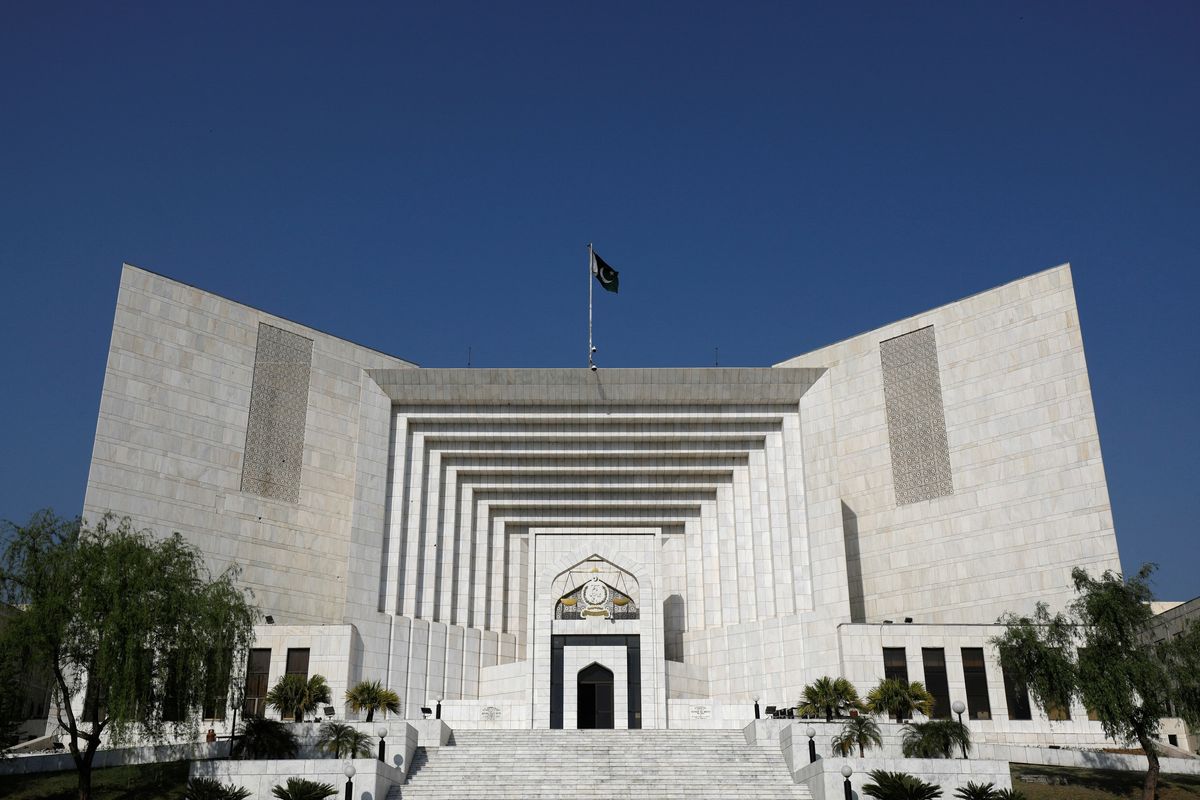Pakistan's tax authority stripped of criminal prosecution powers
Supreme Court declares FBR's arrests and FIRs without tax liability assessment illegal and unconstitutional

Asma Kundi
Producer, Islamabad
Asma Kundi is a multimedia broadcast journalist with an experience of almost 15 years. Served national and international media industry as reporter, producer and news editor.

Reuters/File
The Supreme Court of Pakistan declared on Wednesday that the country’s central tax authority — the Federal Board of Revenue (FBR) — cannot initiate criminal proceedings or arrest taxpayers without first determining tax liability and providing appeal rights.
In a landmark judgment, the court ruled that the FBR’s Directorate of Intelligence & Investigation (Inland Revenue) is authorized only to gather information, not prosecute individuals or businesses.
The judgment nullifies all First Information Reports (FIRs), arrests, and criminal trials initiated by the FBR without a lawful tax assessment. The court called these actions unconstitutional, citing violations of Articles 4 and 10-A of the Constitution, which guarantee due process and the right to a fair trial.
The bench, comprising Justice Shahid Waheed, Justice Irfan Saadat Khan, and Justice Aqeel Ahmed Abbasi, delivered the decision while hearing a set of civil appeals. These appeals challenged earlier rulings by high courts in Lahore, Karachi, Peshawar, and Islamabad that had blocked FBR actions deemed to bypass due legal process.
The court made it clear that the FBR’s prosecution efforts under Section 37A of the Sales Tax Act, 1990, and SRO 116(I)/2015 are invalid unless preceded by a lawful assessment of tax dues.
“Criminal proceedings must follow proper tax determination, service of order, and exhaustion of appeal rights,” the judgment said. “No arrest or FIR can be made solely on preliminary findings or notices.”
The ruling effectively renders the FBR’s current prosecution mechanisms powerless. It upheld all earlier high court decisions and dismissed FBR’s appeals. As a result, hundreds of ongoing FIRs and arrests have been invalidated, and the court ordered an immediate halt to all related proceedings.
Legal expert weighs in
Hafiz Ahsaan Ahmad Khokhar, Advocate Supreme Court of Pakistan and a renowned tax expert, told Nukta that while the Federal Board of Revenue (FBR) is legally empowered to initiate criminal prosecution under the Sales Tax Act, 1990, the Income Tax Ordinance, 2001, and the Customs Act, 1969—for offences such as willful tax evasion, concealment of income, and the issuance of false or fraudulent returns or invoices—an important interpretive dimension has now been added by the Supreme Court’s ruling.
He explained that the Court has observed that prior assessment and adjudication of alleged tax liability is a necessary precondition before launching any criminal prosecution.
Khokhar added that this judicial interpretation, while not invalidating the penal provisions themselves, will significantly impact the timing, method, and procedural integrity of prosecution proceedings under these three core tax laws.
“It reinforces the principle that fiscal prosecution cannot be employed prematurely or as a coercive tool, without first establishing liability through due legal process,” he noted.
Nonetheless, he clarified that the statutory powers of prosecution under these laws remain intact and continue to be enforceable unless amended by parliament or struck down through further judicial review.
What’s the issue?
The decision stems from high-profile cases involving firms like Taj International (Pvt) Ltd and American Traders. These companies were subjected to FIRs and arrests without civil tax assessments—a practice the Supreme Court has now formally struck down.
High courts across Pakistan, including those in Lahore, Sindh, Peshawar, and Islamabad, had consistently ruled against such actions, prompting appeals to the Supreme Court.
This ruling is expected to impact hundreds of cases, forcing the FBR to overhaul its enforcement strategy. The full judgment is available on the Supreme Court’s website, with parties given two weeks to submit written submissions.







Comments
See what people are discussing